The practical value of history is to throw the film of the past through the material projector of the present on to the screen of the future.
B. H. LIDDELL HARTEnsure that both plan and dispositions are flexible, adaptable to circumstances. Your plan should foresee and provide for a next step in case of success or failure.
More B. H. Liddell Hart Quotes
-







-





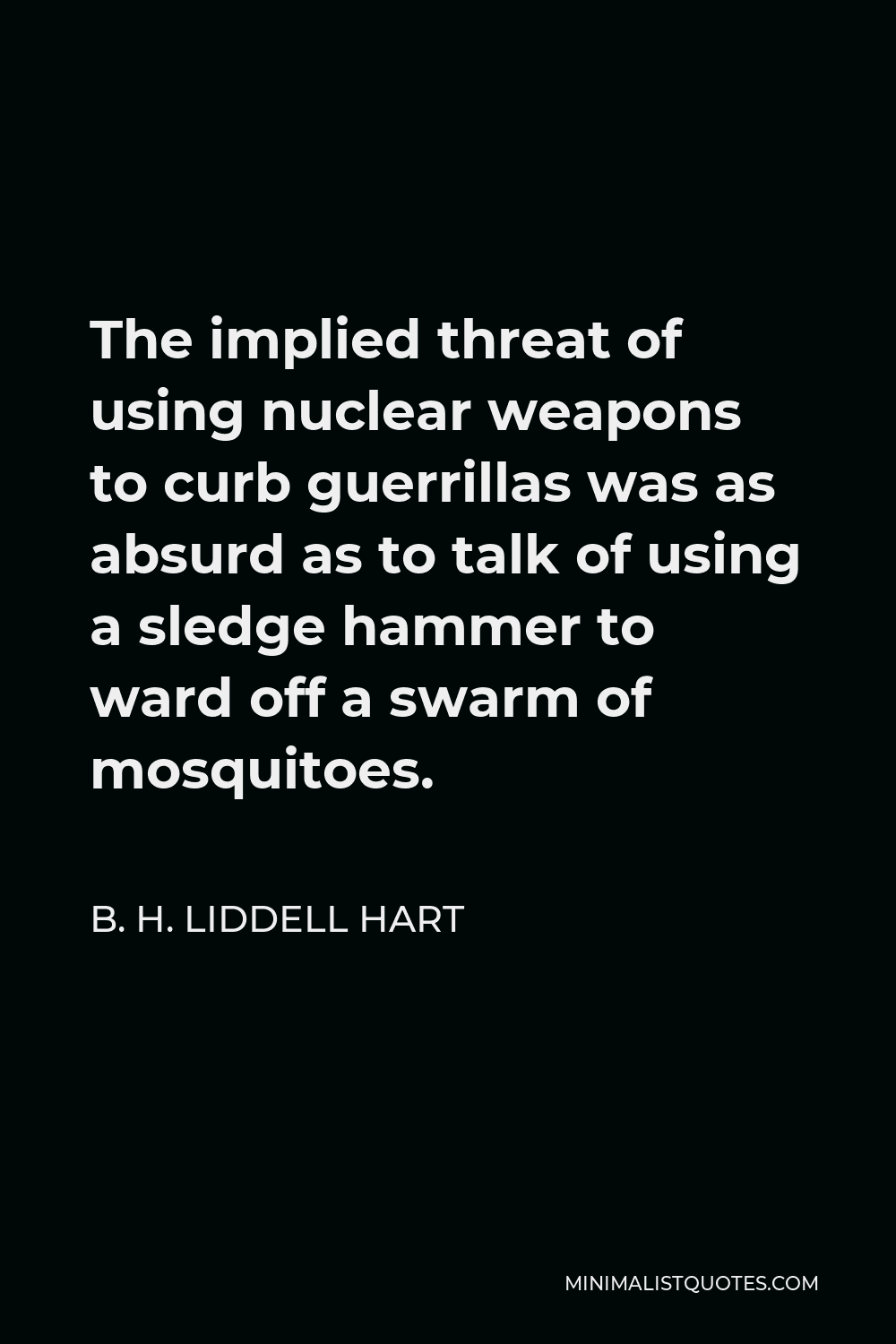
The implied threat of using nuclear weapons to curb guerrillas was as absurd as to talk of using a sledge hammer to ward off a swarm of mosquitoes.
B. H. LIDDELL HART -







The search for the truth for truth’s sake is the mark of the historian.
B. H. LIDDELL HART -





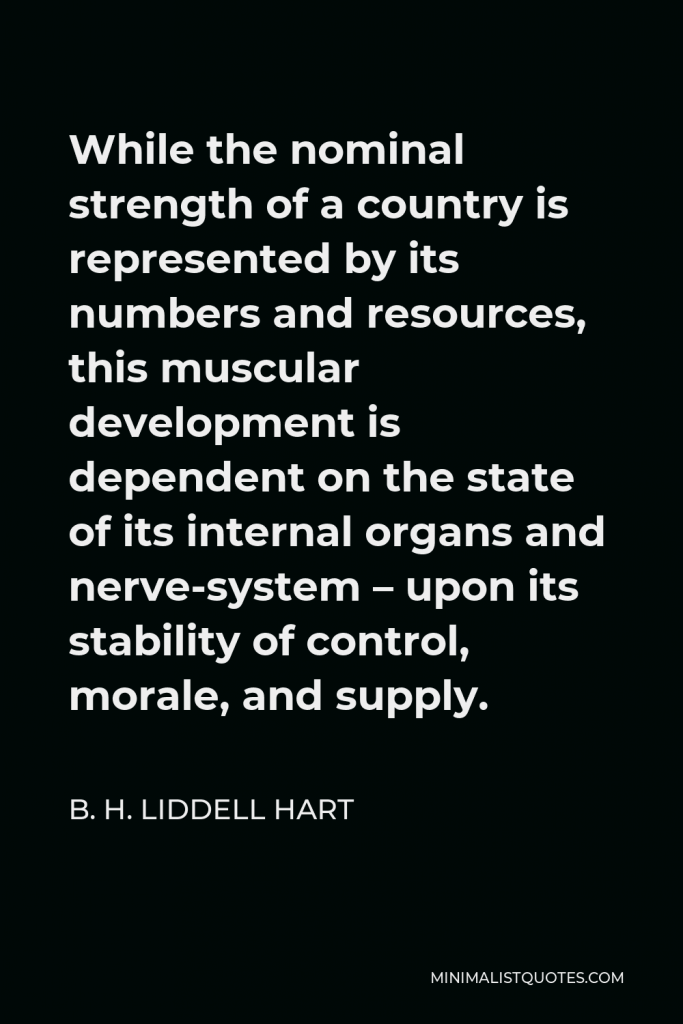

While the nominal strength of a country is represented by its numbers and resources, this muscular development is dependent on the state of its internal organs and nerve-system – upon its stability of control, morale, and supply.
B. H. LIDDELL HART -





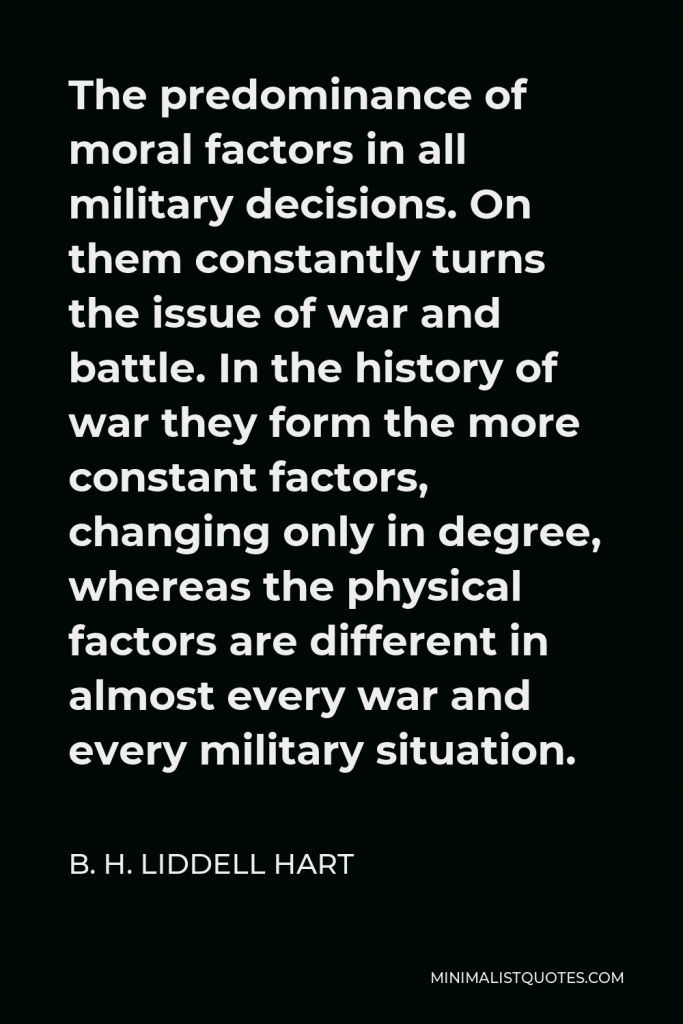

The predominance of moral factors in all military decisions. On them constantly turns the issue of war and battle. In the history of war they form the more constant factors, changing only in degree, whereas the physical factors are different in almost every war and every military situation.
B. H. LIDDELL HART -





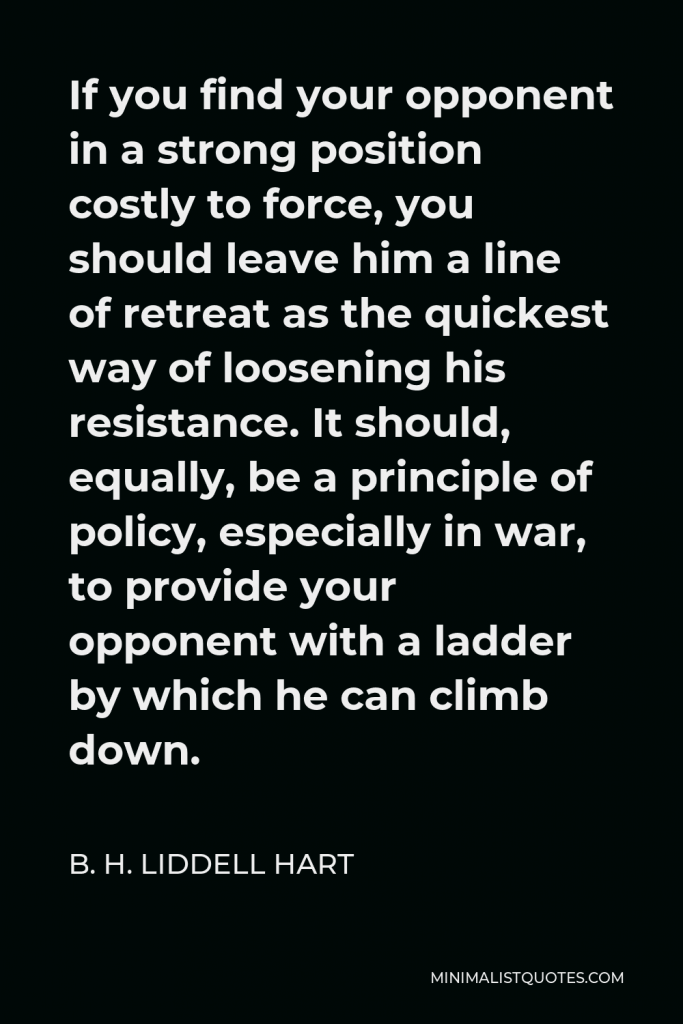

If you find your opponent in a strong position costly to force, you should leave him a line of retreat as the quickest way of loosening his resistance. It should, equally, be a principle of policy, especially in war, to provide your opponent with a ladder by which he can climb down.
B. H. LIDDELL HART -





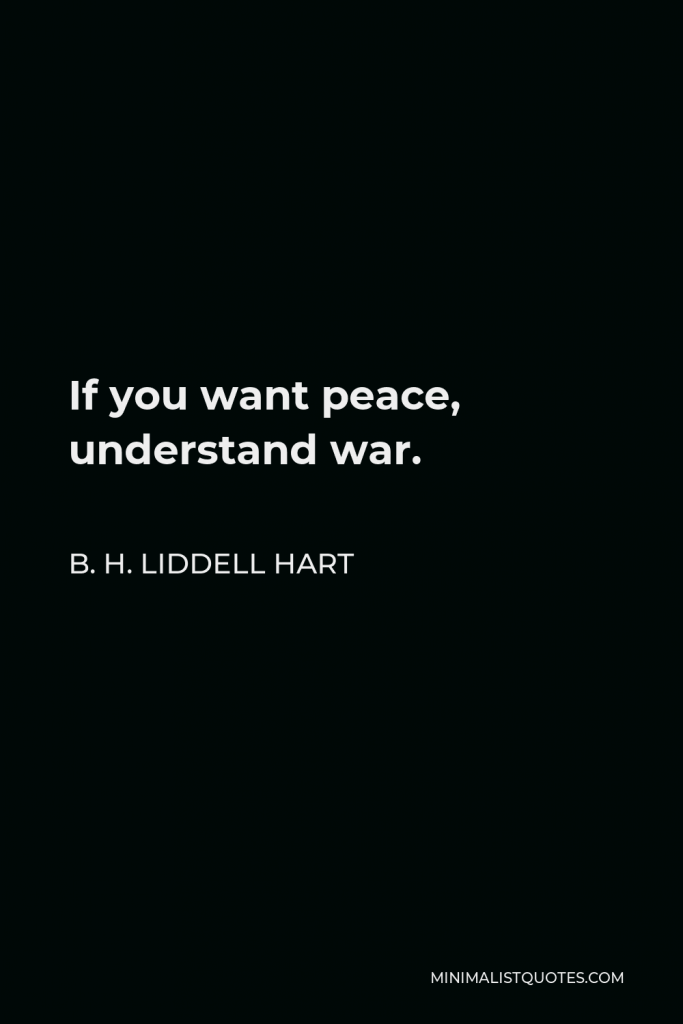

If you want peace, understand war.
B. H. LIDDELL HART -





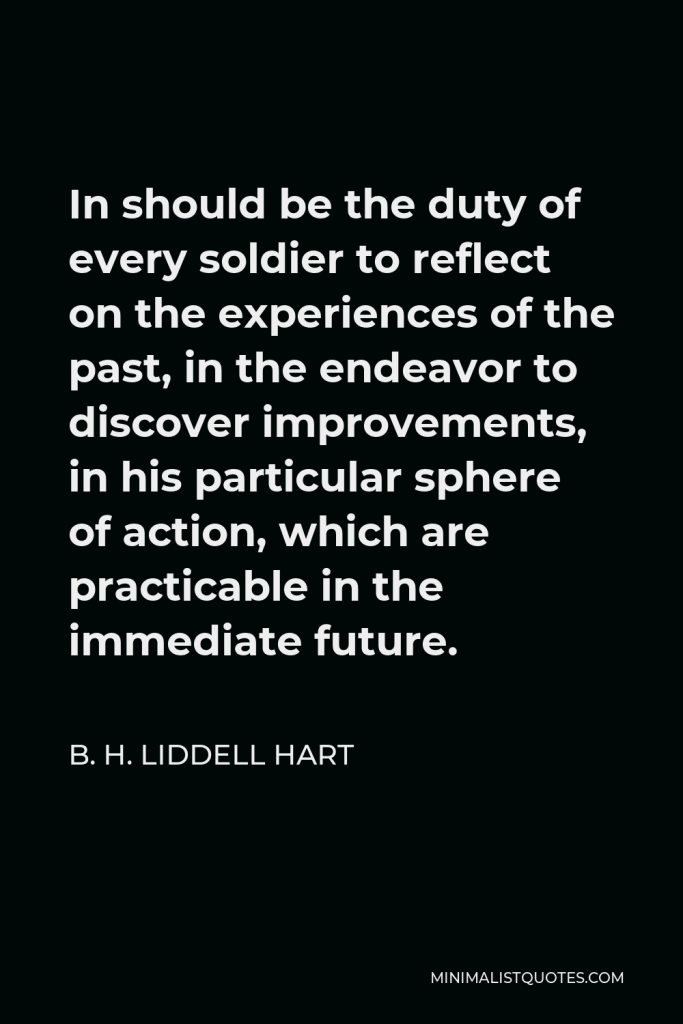

In should be the duty of every soldier to reflect on the experiences of the past, in the endeavor to discover improvements, in his particular sphere of action, which are practicable in the immediate future.
B. H. LIDDELL HART -





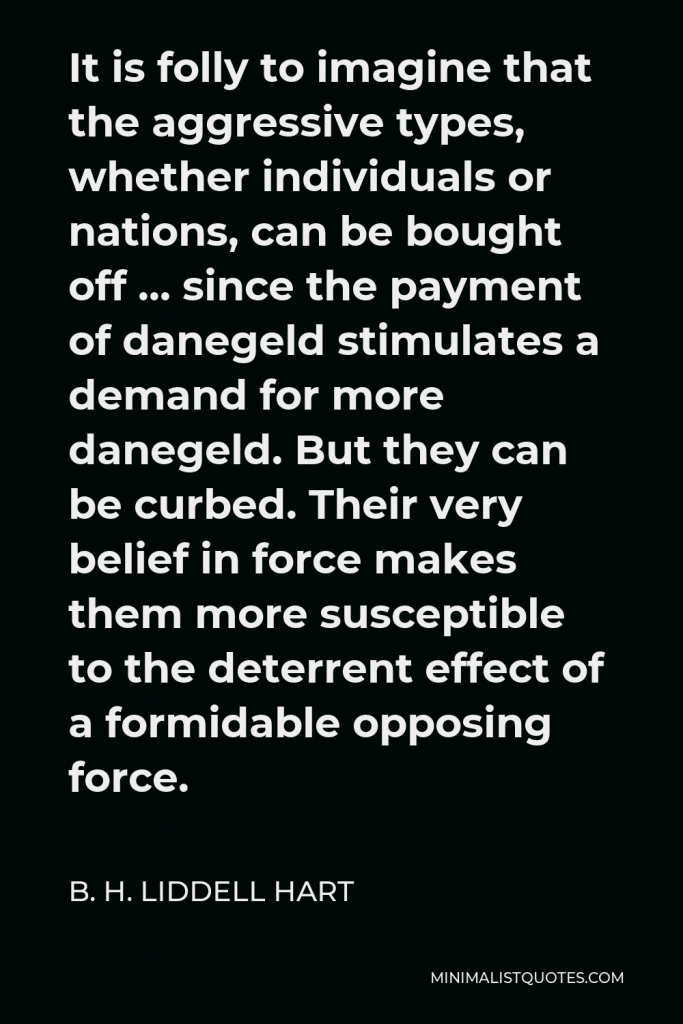

It is folly to imagine that the aggressive types, whether individuals or nations, can be bought off … since the payment of danegeld stimulates a demand for more danegeld. But they can be curbed. Their very belief in force makes them more susceptible to the deterrent effect of a formidable opposing force.
B. H. LIDDELL HART -





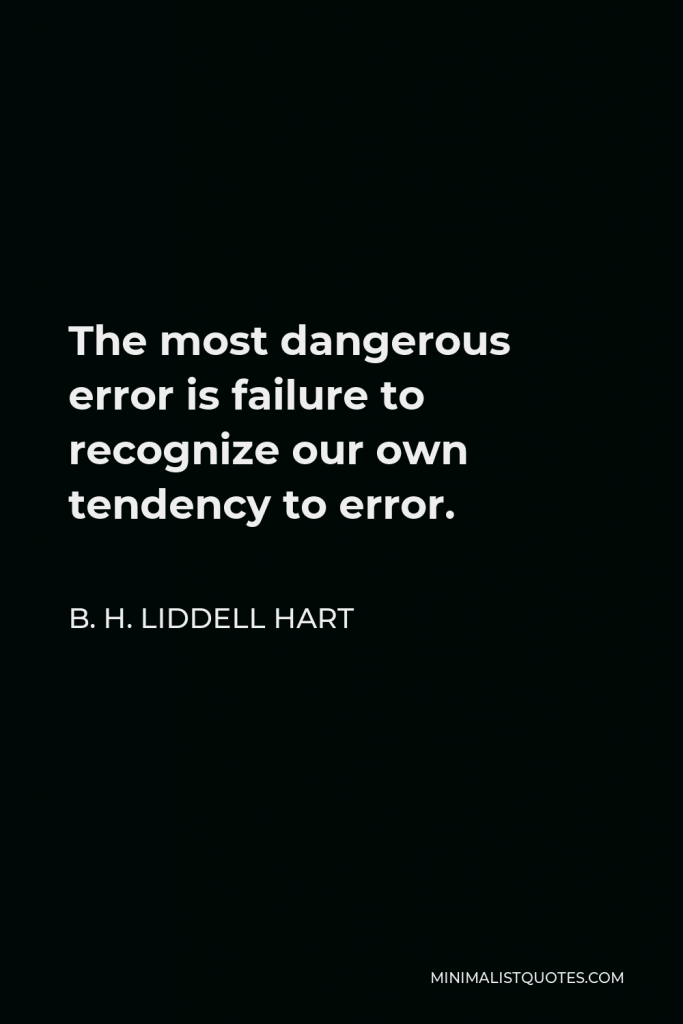

The most dangerous error is failure to recognize our own tendency to error.
B. H. LIDDELL HART -





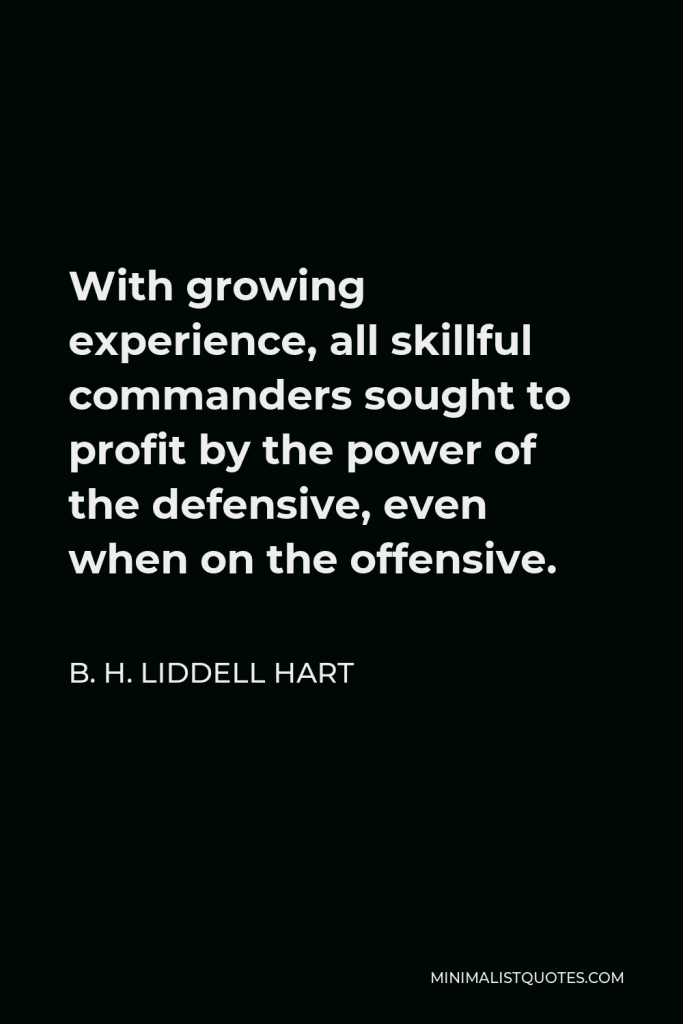

With growing experience, all skillful commanders sought to profit by the power of the defensive, even when on the offensive.
B. H. LIDDELL HART -





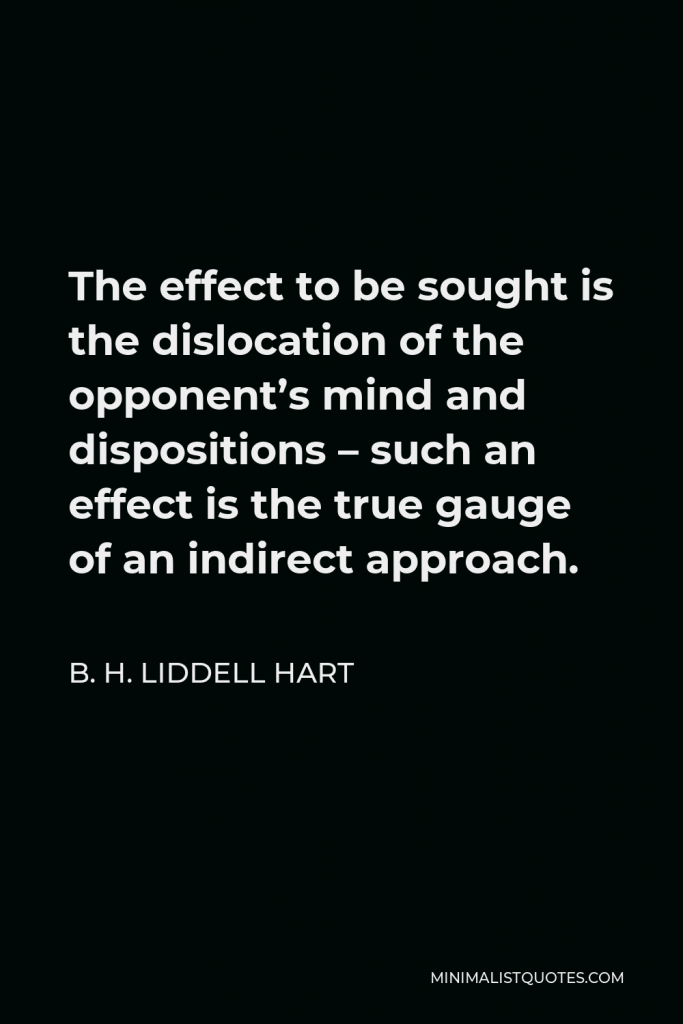

The effect to be sought is the dislocation of the opponent’s mind and dispositions – such an effect is the true gauge of an indirect approach.
B. H. LIDDELL HART -







A complacent satisfaction with present knowledge is the chief bar to the pursuit of knowledge.
B. H. LIDDELL HART -





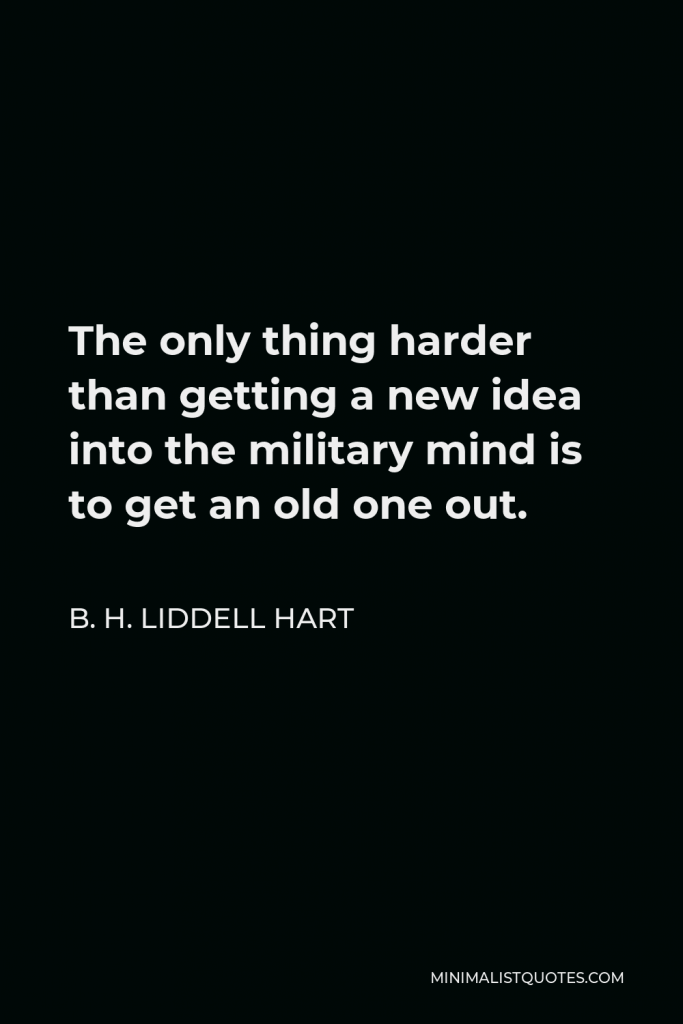

The only thing harder than getting a new idea into the military mind is to get an old one out.
B. H. LIDDELL HART -





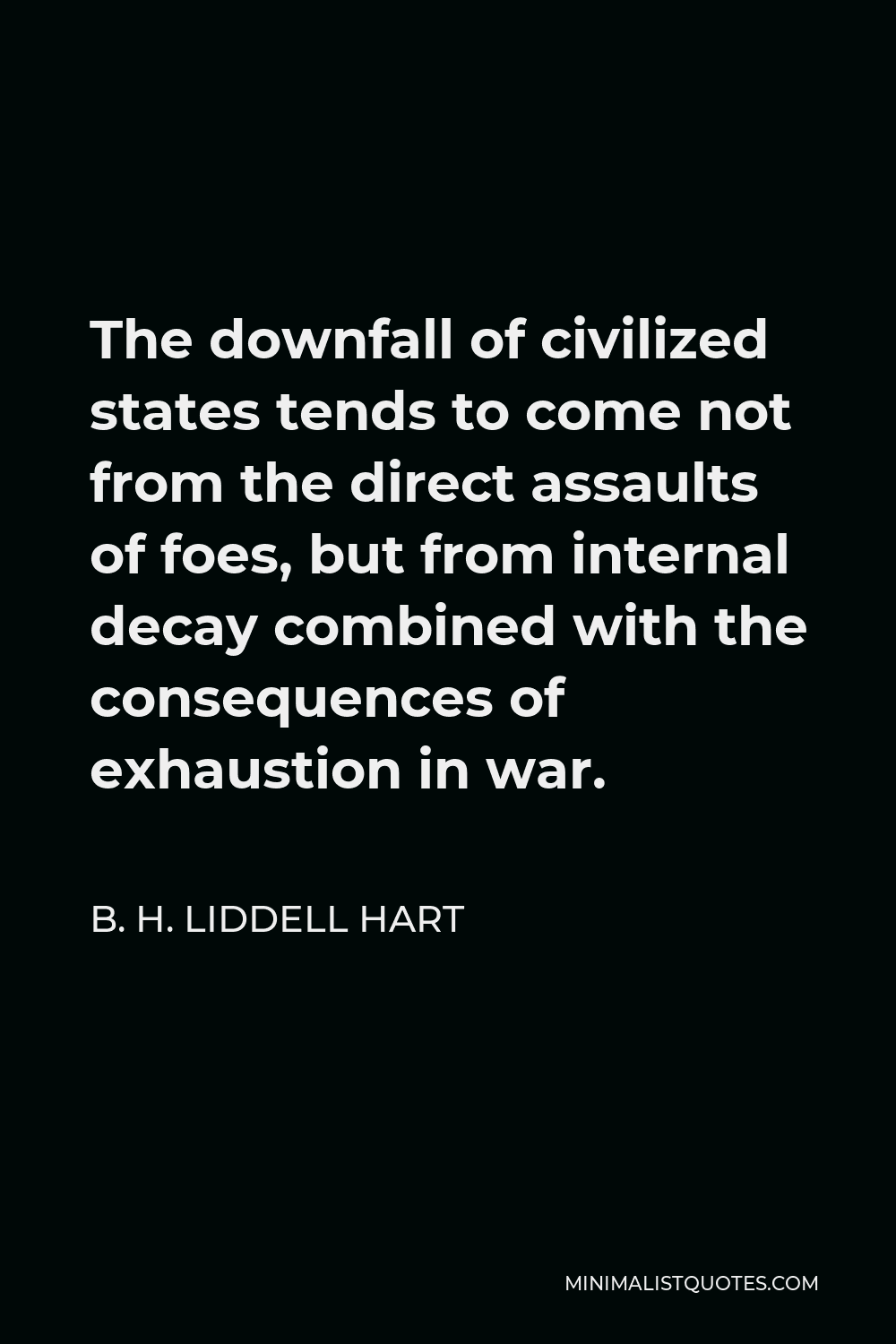
The downfall of civilized states tends to come not from the direct assaults of foes, but from internal decay combined with the consequences of exhaustion in war.
B. H. LIDDELL HART -





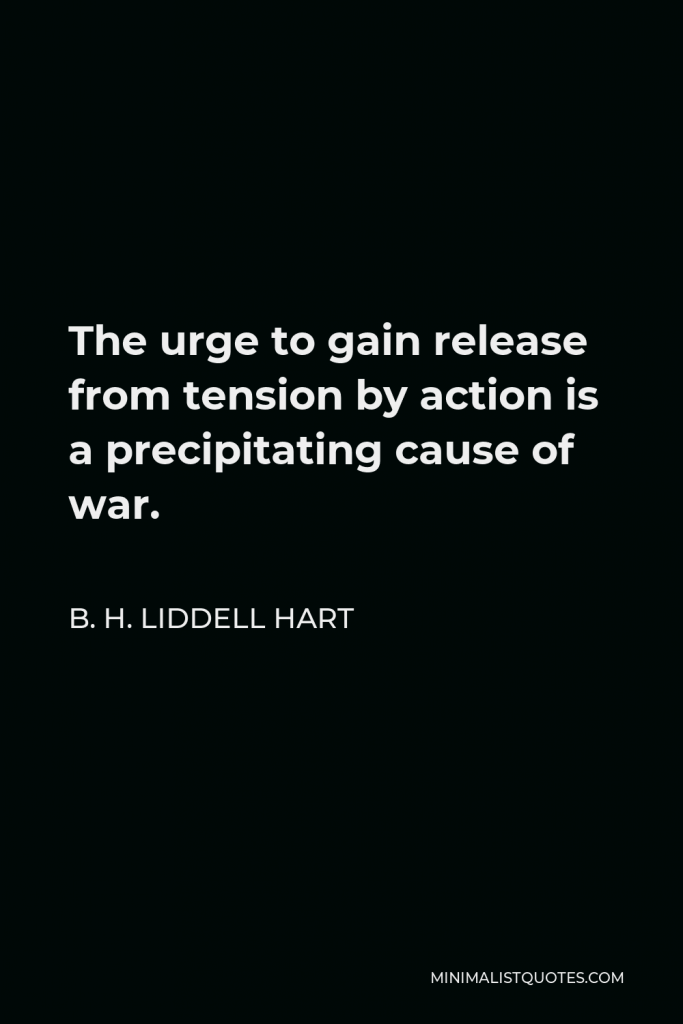

The urge to gain release from tension by action is a precipitating cause of war.
B. H. LIDDELL HART







